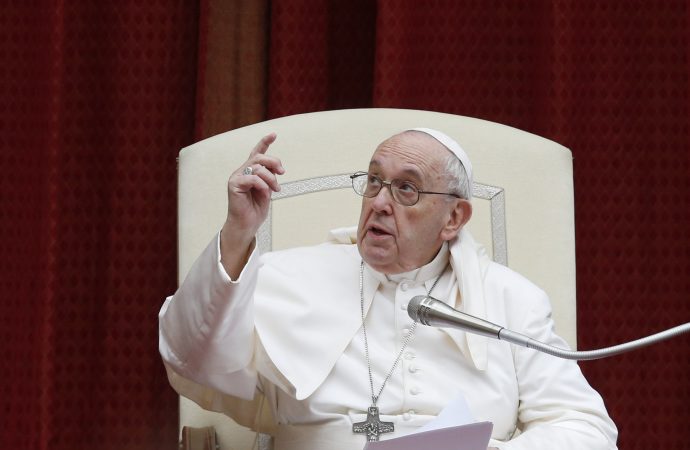Addressing ambassadors from various countries, Pope Francis Friday expressed gratitude Friday at the cease-fire in the Holy Land, while warning that the COVID-19 pandemic has made it clear the world struggles to find common solutions to shared problems.
“My thoughts turn to the events taking place these days in the Holy Land,” Francis said, referring to the conflict between Israel and Hamas in Gaza. “I thank God for the decision to halt the armed conflicts and acts of violence, and I pray for pursuit of paths of dialogue and peace.”
The truce between Israel and Hamas began on Friday, after international diplomatic efforts and growing pressure from Israel’s closest ally, the United States, to bring an end to the flare-up. The truce halts nearly two weeks of fighting that has left hundreds dead and parts of the already impoverished Gaza Strip reduced to rubble.
The pope also noted that on Saturday, Catholic bishops of the Holy Land together with the faithful celebrate the Vigil of Pentecost in Saint Stephen’s Church in Jerusalem and implore the gift of peace.
“I take this occasion to ask all the pastors and faithful of the Catholic Church to unite themselves spiritually with this prayer,” he said, asking for every Catholic community to pray so that “Israelis and Palestinians may find the path of dialogue and forgiveness, be patient builders of peace and justice, and be open, step by step, to a common hope, to coexistence among brothers and sisters.”
Francis’ remarks came as he was addressing the ambassadors of Singapore, Zimbabwe, Bangladesh, Algeria, Sri Lanka, Barbados, Sweden, Finland, and Nepal, who were presenting letters of accreditation.
According to Francis, the COVID-19 pandemic has made people “more conscious of our interdependence as members of the one human family and our need to be attentive to the poor and the vulnerable in our midst,” and called on societies to take concrete steps to develop a global “culture of care.”
“Sadly, the pandemic has also made us acutely aware that the international community is experiencing a growing difficulty, if not the inability, to seek common and shared solutions to the problems of our world,” he said. “In this regard, I think of the need to confront such pressing global issues as migration and climate change, as well as the humanitarian crises that they often bring in their wake.”
Francis also noted the “economic debt” and the “ecological debt” that burden countries and peoples, affected by human induced ecological degradation.
“These issues are not simply political or economic; they are questions of justice, a justice that can no longer be ignored or deferred,” he said. “Indeed, they entail a moral obligation towards future generations, for the seriousness with which we respond to them will shape the world we leave to our children.”
The pontiff highlighted the role of diplomats in forging a global consensus, and he said the Holy See “supports every effort to build a world in which the human person is at the center, finance is at the service of an integral development, and the earth, our common home, is protected and cared for.”

